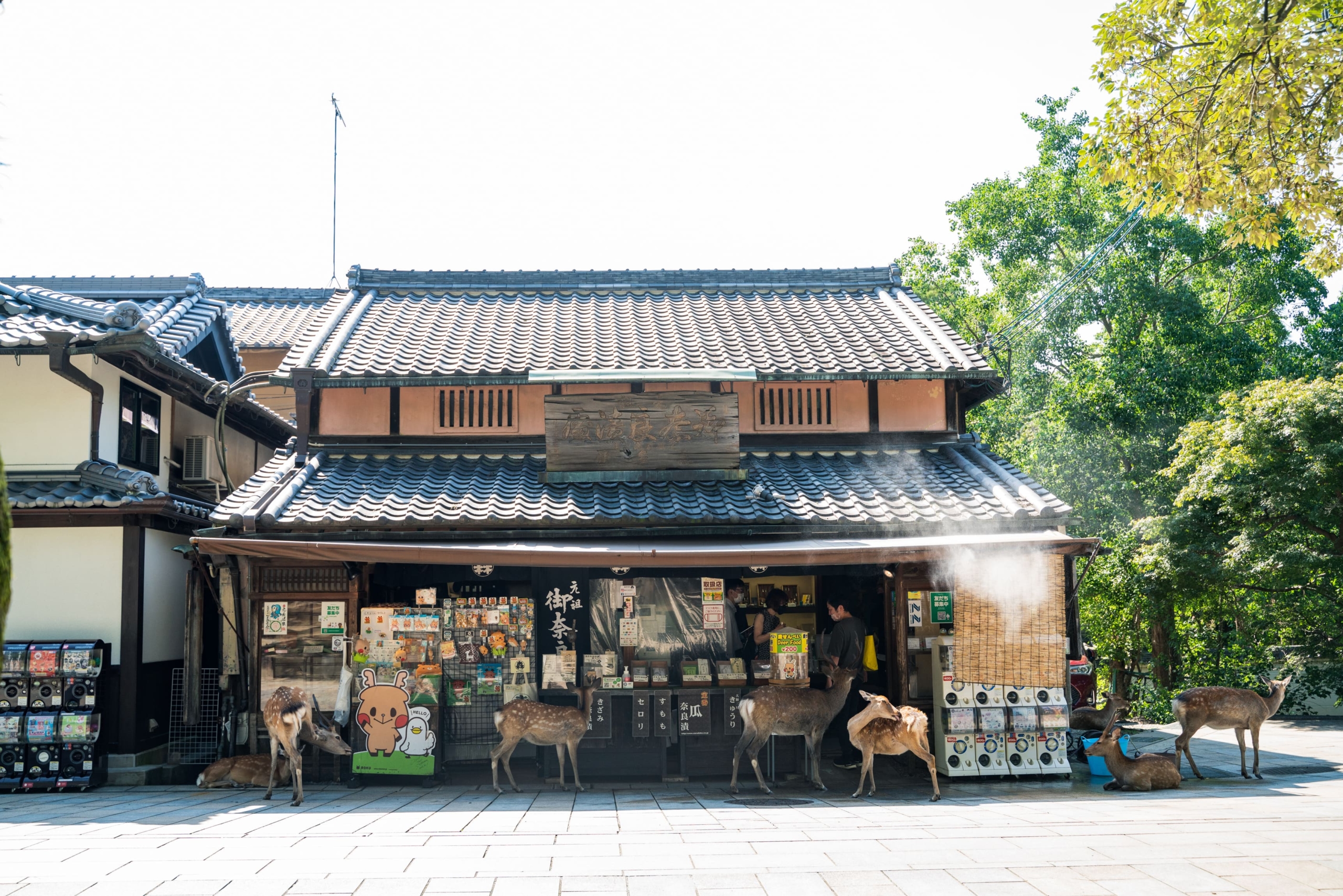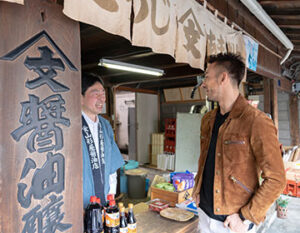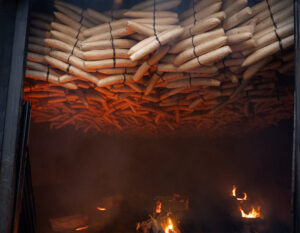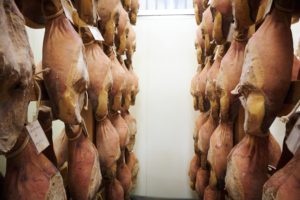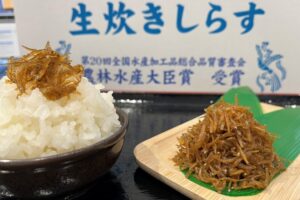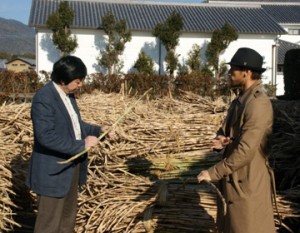The beginning of Nara-zuke
Nara-zuke is made by pickling salted vegetables and fruits in sake lees. This pickle has a strong impact with its tortoiseshell-colored visual and strong alcoholic flavor when you taste it. It is said to have originated more than 1,300 years ago when vegetables were pickled in doburoku, the prototype of sake, as a preserved food. At that time, sake made from rice was a luxury item, and there are documents that show that it was consumed by aristocrats in the Heijo-kyo Capital, making it a traditional Nara food. Later, in the Muromachi period (1333-1573), when the method of making sake was established in Nara, the process was changed to marinating in “sakekasu” (sake lees), and by the end of the Edo period (1603-1868), it was being sold as a commodity. At that time, Nara’s reputation for good sake attracted tourists, and it is said that the product became popular as a souvenir when they visited Nara and became “Nara-zuke,” named after the place where it was made. Mori Narazuke Shop, founded in 1869, is one of the inheritors of the Nara pickle making tradition that began with Nara’s sake culture. The store is located in front of the Nandaimon gate of Todaiji Temple and still receives enthusiastic support from tourists as a souvenir and from lovers and locals alike.

As with most pickles, the vegetables are first pickled with salt alone to remove the water from the vegetables. Once the water is sufficiently removed, the vegetables are next pickled in sake-kasu (sake lees). When the vegetables are soaked in sake-kasu, the salt is removed and the flavor of the sake-kasu soaks into the vegetables. The process of changing the sake lees is repeated two or more times. Incidentally, if this process is done only once, it is classified as “pickling with sakekasu. The color and flavor of the sakekasu is deepened and the taste is deepened by changing the blend of the sakekasu each time it is pickled and aged. The number of times the sake lees is changed differs from store to store, and the process of stepping in and the timing of changing the sake lees is all based on the longtime intuition of the artisan, who carefully carries out each step by hand, which is probably how Nara pickles with deep flavor are made. Sakekasu contains alcohol, and the alcohol content remaining after pickling is about 8%. One of the characteristics of Nara pickles is that the unique flavor and aroma of sakekasu can be enjoyed. If you feel the flavor of sakekasu is too strong, let it sit in the refrigerator for half a day after cutting, and the alcohol will dissipate and the original sweetness of sakekasu will increase, making it easier to eat.
How to make Nara-zuke

Furthermore, Mori Narazuke is characterized by the use of nothing but salt and sakekasu (sake lees). The sake lees is changed about five times, depending on the material to be pickled. The salt content is lower than that of ordinary pickles. The sweet aftertaste comes from the rice malt and is a completely natural fermented food. Therefore, it is a little spicy and goes well with rice and sake. There are 13 kinds of vegetables to be pickled. All of them are selected from contracted farmers. They have tried their hand at Nara-zuke, a traditional vegetable from Yamato called “Yamato Sanjaku Cucumber,” or pickling in an old-fashioned jar, and they never stop trying new things while keeping the traditional methods handed down from generation to generation.

Spreading Nara-zuke to the world
Mariko Mori, the fifth president of the company, is working on how to brand this traditional food and promote it, especially to young people who do not eat Nara pickles, from her unique female perspective.
She is already working on an initiative to introduce new recipes using Nara pickles. She has already introduced new recipes using Nara pickles, such as “Narazuke Toast with Melted Cheese,” “Carpaccio with Narazuke Sake Kasu Dressing,” and “Basque Cheese Cake with Additive-Free Nara Pickles,” on her website and through social networking services. In addition to these efforts, she also uses the media to promote Nara-zuke and its beauty benefits.
It may not be long before the new generation of Nara pickles that Mr. Mori is promoting will be noticed around the world.




